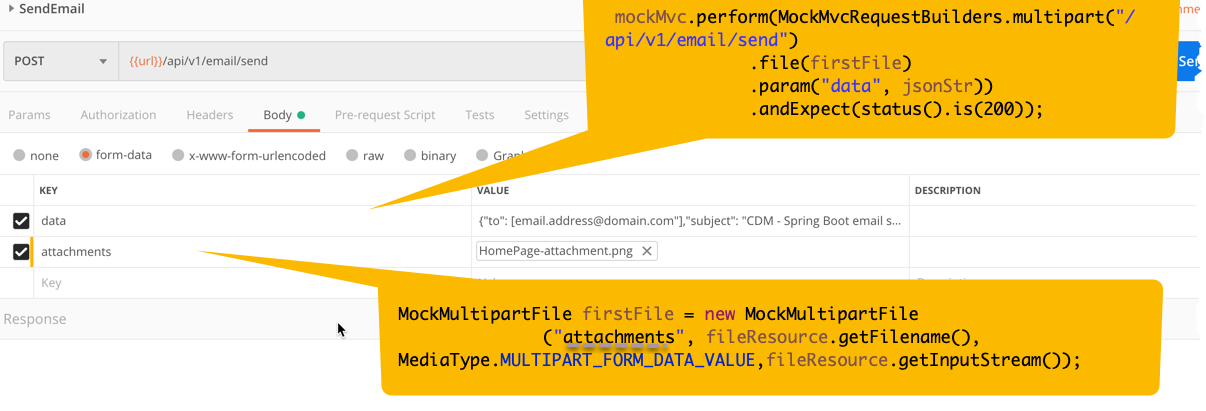Since MockMvcRequestBuilders#fileUpload is deprecated, you'll want to use MockMvcRequestBuilders#multipart(String, Object...) which returns a MockMultipartHttpServletRequestBuilder. Then chain a bunch of file(MockMultipartFile) calls.
Here's a working example. Given a @Controller
@Controller
public class NewController {
@RequestMapping(value = "/upload", method = RequestMethod.POST)
@ResponseBody
public String saveAuto(
@RequestPart(value = "json") JsonPojo pojo,
@RequestParam(value = "some-random") String random,
@RequestParam(value = "data", required = false) List<MultipartFile> files) {
System.out.println(random);
System.out.println(pojo.getJson());
for (MultipartFile file : files) {
System.out.println(file.getOriginalFilename());
}
return "success";
}
static class JsonPojo {
private String json;
public String getJson() {
return json;
}
public void setJson(String json) {
this.json = json;
}
}
}
and a unit test
@WebAppConfiguration
@ContextConfiguration(classes = WebConfig.class)
@RunWith(SpringJUnit4ClassRunner.class)
public class Example {
@Autowired
private WebApplicationContext webApplicationContext;
@Test
public void test() throws Exception {
MockMultipartFile firstFile = new MockMultipartFile("data", "filename.txt", "text/plain", "some xml".getBytes());
MockMultipartFile secondFile = new MockMultipartFile("data", "other-file-name.data", "text/plain", "some other type".getBytes());
MockMultipartFile jsonFile = new MockMultipartFile("json", "", "application/json", "{\"json\": \"someValue\"}".getBytes());
MockMvc mockMvc = MockMvcBuilders.webAppContextSetup(webApplicationContext).build();
mockMvc.perform(MockMvcRequestBuilders.multipart("/upload")
.file(firstFile)
.file(secondFile)
.file(jsonFile)
.param("some-random", "4"))
.andExpect(status().is(200))
.andExpect(content().string("success"));
}
}
And the @Configuration class
@Configuration
@ComponentScan({ "test.controllers" })
@EnableWebMvc
public class WebConfig extends WebMvcConfigurationSupport {
@Bean
public MultipartResolver multipartResolver() {
CommonsMultipartResolver multipartResolver = new CommonsMultipartResolver();
return multipartResolver;
}
}
The test should pass and give you output of
4 // from param
someValue // from json file
filename.txt // from first file
other-file-name.data // from second file
The thing to note is that you are sending the JSON just like any other multipart file, except with a different content type.

